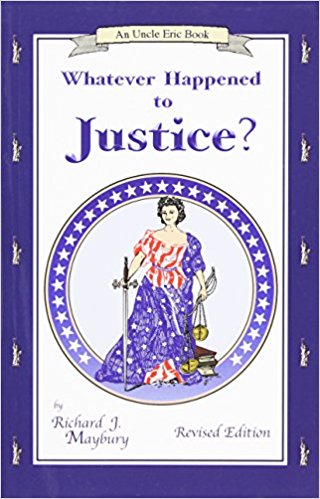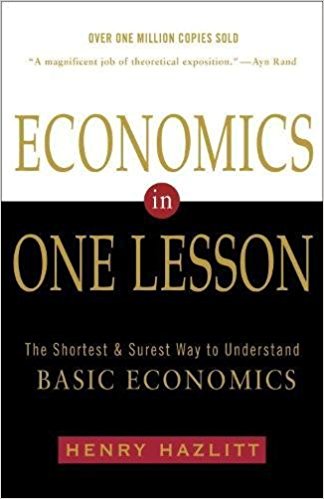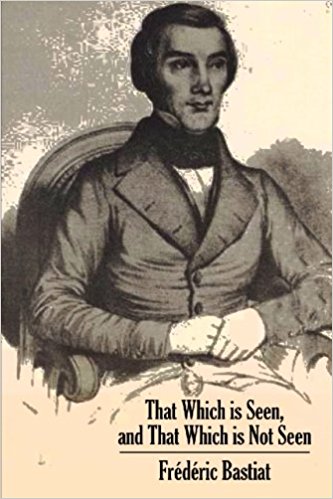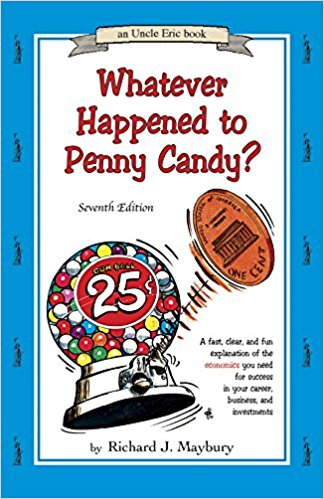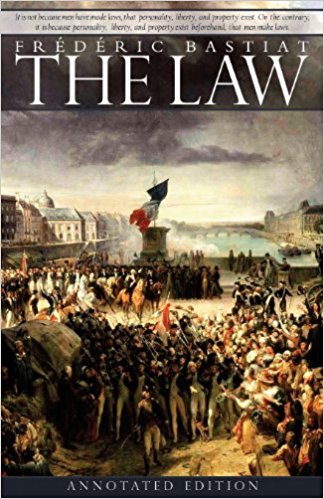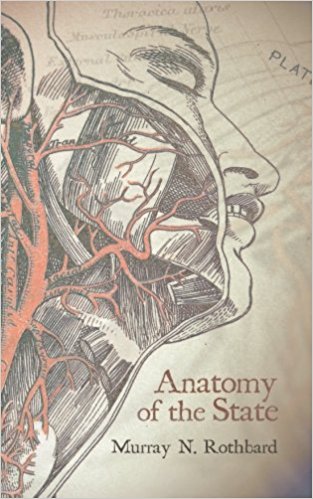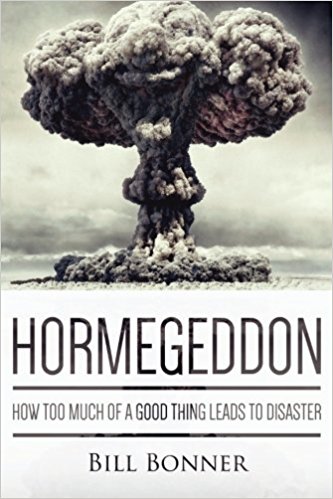
I really enjoyed this book. It’s easy to read and entertaining, yet it really makes you think about the way our society is arranged.
The central concept in the book revolves around “negative marginal utility.” Bonner explains it like this: if you are starting to learn French, and you spend a minute and learn “Bon jour”, you have increased your vocabulary from 0 to 1 – an infinite amount! If you spend another minute and learn “Je m’appelle Bill”, you have doubled your vocabulary: 100% increase! If you keep doing this for, say, a year, when you do one more minute of study, the gain is very small, maybe 0.1%. The “marginal utility” (how much extra benefit you get) of an extra minute of study is declining.
Bonner’s thesis is that for many activities, marginal utility can actually go negative – what used to help now can hurt. Take eating: if you are on the verge of starvation, a mouthful of food could save your life. Getting good, complete nutrition could add years to your life. But pigging out on 5000 calories a day will likely kill you very quickly – the marginal utility of the extra food is definitely negative!
I’ll reproduce Bonner’s recipe for Hormegeddon (negative marginal utility pushed so far it blows up):
- It is the result of rational thinking
- It is the result of large-scale planning, usually backed by the police power of goverment.
- The feedback loop is twisted. Those who make the mistakes are isolated from the pain.
- It creates its own support. Rather than self-limiting, public policy disasters are self-perpetuating.
He then goes through several examples: economics, government, war, healthcare, and demonstrates declining or negative marginal utility. (Government, for example, dpends 1610X more money per capita, and has 11,000 times more debt per capita, than a century ago – and still growing!) For the example of war, he uses Hitler’s Germany, where unemployment went negative and GDP was soaring – the only problem was the people were starving and eventually the entire economy collapsed. Hormegeddon.
Maybe a few quotes of his will illuminate it more. After discussing what a disaster the Iraq war was, in terms of money and lives, as well as not coming close to achieving its objectives, he writes:
And where were the intellectuals who pushed the [Iraq] war? Were there no gallows? How come they walked around and still made TV appearances?
They claimed US troops would be greeted as liberators. They claimed the war would pay for itself with Iraqi oil. Thomas L. Friedman said an invasion of Iraq would be one of the great revolutionizing events of history. The American GIs weren’t really fighting men, they were ‘nuturing’ a great new democracy. Surely there is some corner of Hell, dark and hot, reserved for these miscreants.
One of the phenomena that he notes is that these bad, hormegeddonistic policies usually attract “zombies” – people who benefit (draw a salary) from the program, but actually contribute nothing to the wealth of the nation.
How much of the world’s trouble is caused by guys with hammers or wrenches in their hands? How many bakers cause depressions? How many masons are mass-murderers? How many steelworkers or cabinetmakers or deliverymen cause mass starvation?
The common workingman may be a bumbler and a fool, but he is rarely responsible for anyone’s troubles but his own.
They guy who causes trouble is the fellow in a suit. …
In all, this book is a great read and offers a very interesting, and seldom-heard, perspective on our society and the source of our troubles. It’s very much worth reading!
